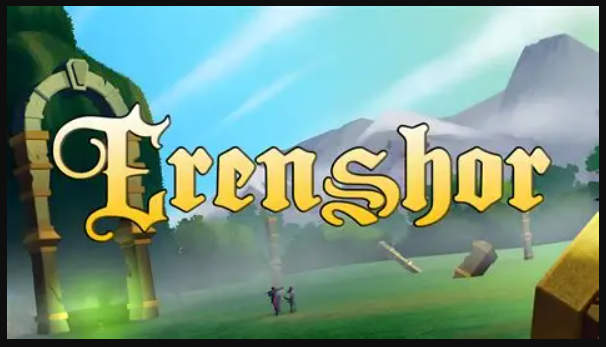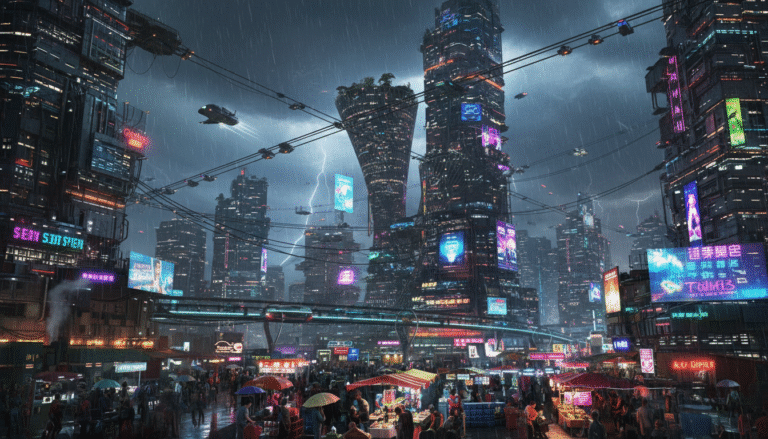In the upcoming novel The Game State, I explore a lot of AI-related topics. How could AI be used to predict consumer behavior and, combined with intrusive biofeedback technology, create an economy based on consumer happiness? How will AI affect religion and spirituality? Could it be used to eliminate the need for a criminal justice system — not by allowing for Minority Report-like strike forces, but by empowering our mental health and intervention systems such that criminality is made obsolete?
Unlike many science fiction writers, I don’t think AI is evil. I really don’t think it will look for ways to kill us, and the whole “I can only save mankind by killing everyone” storyline is not only played out, but fundamentally stupid.
But how do I feel about it as a writer?
I’ve been making my living through writing (one way or another) for at least twenty years now. Not a week goes by when someone doesn’t ask me what I plan on doing when AI takes over my job. A year ago, I laughed at the question because AI simply couldn’t write very well. Now, I have to cue up more serious, thoughtful responses.
Is AI Taking Writers’ Jobs?
I couldn’t start my career now the way I did in the early 2020s. I began by writing quick copy for small businesses and entrepreneurs — mostly emails, press releases, and short blog posts.
These days, most small business owners are turning to ChatGPT for these. And honestly, I can’t really blame them. The quality difference between ChatGPT’s output and what you’re going to get from a writer willing to give you 500 words for $5 is probably negligible.
But that’s the bottom of the copywriting food chain. Thankfully, I have a lot of experience both in writing and in writing for the tech industry. I’ve been a marketing agency account manager, an SEO manager, a brand consultant, and now the CMO of a software startup. What this means is that I’m not just a writer — I’m a writer who knows two industries from experience.
That’s where AI falls short. When you get the high-level corporate stuff, there’s kind of a bifurcation of needs. Sure, some enterprises who want to pinch pennies will turn to ChatGPT to crank out everything from blog posts to competitive analysis reports, but some still value relationships with their freelancers, the outside expertise, and the ease of sending a brief and getting a completed piece of work in return.
And, frankly, some businesses just don’t have the time or knowledge to use ChatGPT well.
Writers Should Embrace AI
I’m not an early adopter…of anything, really. For a sci-fi writer who’s also an executive in the tech sector, I’m kind of a luddite. This isn’t because I’m not tech savvy; I’m just picky. I don’t feel the need to apply technology to every aspect of existence.
That’s kind of unusual for people in my circles. IT folks tend to ride the trends and leverage tech as soon as it’s available.
My peers were the first to push me toward using ChatGPT. It was months before I relented, and I finally broke down and began using it as a research tool. I’ll admit, the tech would have made writing Into the BeanStalk and Into the Looking Glass quite a bit easier, simply because ChatGPT is very good at sniffing out information and distilling it into reasonable chunks. Both books were very heavily researched, and I’d often spend three hours researching something like experimental electric cooling systems just for a single line of worldbuilding in the book.
Now, I often use ChatGPT as an assistant when writing tech articles. I don’t use its writing (because it still sucks) but it’s extremely helpful when a brief asks me to write…I dunno…an example script for MS Dynamics, and I only know enough JavaScript to make a novelty website form that spits back your name.
This is a real time-saver and a blessing. And it’s an example of why writers should embrace AI, not fear it.
Can AI Write Novels?
Part of my long-term plan to survive AI has been to transition fully to writing fiction. I don’t know where we’ll be in a year, but right now, ChatGPT is terrible at storytelling. I expect this will be a very difficult problem for the models to overcome, simply because I’ve spent decades honing my own writing skills.
You see, business writing can be pretty formulaic. When someone puts out a blog post written entirely by ChatGPT, it’s pretty hard to tell that a computer wrote it unless you know what to look for.
But good fiction is not quite so cut-and-dry. It’s not an information delivery system, it’s an art. (Bad fiction is another story. ChatGPT can already write bad fiction.) Still, people are trying to write novels with it, which means it’s gonna happen.
I see this as being a good thing for writers. The market is flooding right now with garbage books being assembled by AI. I expect this will fragment the market a bit. Some readers will be accepting of poorly-written content that’s released at lightning speed. That’s perfectly fine. But some readers will experience a sort of fatigue that galvanizes their need to find good quality stories.
I figure this will be true market fragmentation because it will likely change the way people buy books. For instance, if Amazon continues publishing hundreds of AI-written junk books every day, then readers will start looking elsewhere for the quality goods.
Where? I don’t know. We could end up with the kind of market that emerged after big box stores took over the brick-and-mortar scene. Essentially, the boutique emerged as the best survival strategy — you can’t compete with Walmart on price, so offer better products and a better, personalized shopping experience.
Online bookstores might have to do the same thing. For example, someone could launch a cyberpunk-focused online bookstore that prioritizes reader enjoyment instead of advertising and sales-focused algorithms. In theory, this online store would cater to the cyberpunk lover so much that they would have no need to wade through thousands of trash AI books on Kindle.
In time, the “good writers” would likely migrate away from Kindle and focus on distributing through these boutiques. I certainly would.
But What Happens When AI Can Write Good Novels?
Artificial Intelligence will, eventually, write a very good novel. I have no doubt about that at all.
The only hope I see here is that human writers will still need to train the models. And if you want AI writers with different styles, you’ll probably need different writers to do the training.
Eventually, you’ll probably have an AI model trained off of a bestselling author who can co-write or fully write novels that are indiscernible from the real thing. In my mind, it will be sort of like James Patterson’s books. He doesn’t write all those books — he just gives a “collaborating co-author” a plot outline and helps them write it. That’s a process that could easily be replaced by AI.
(So if anyone should be concerned, it should be the co-authors on James Patterson’s books.)
Our responsibility here is to prevent AI from actually screwing legitimate authors. By this, I mean we shouldn’t allow purely AI-written books to be tagged with a real author’s name, and we should absolutely not allow AI models to be trained off of authors’ works without compensating the writer.
I’m trying to get ahead of this danger myself. There’s a good chance that I will be directly involved in training an AI model that will be used to write fiction. I don’t consider this selling out by any means, rather a way to make sure I’m compensated for something that will probably happen anyway.
In negotiations thus far, I’ve made my position very clear regarding how I’d allow that model to be used. Long story short, I will not participate in any AI project that robs creatives of a job. I will, however, contribute to something that helps me write quality books. Like I said, I don’t see it being any different than James Patterson’s name being the biggest thing on a book cover for a book he didn’t actually write. Or ghostwriting. You know how many books in Kindle aren’t actually written by the author whose name is on it? A lot of them.
(I’m sure you’ve figured out that ghostwriting is usually involved when an author puts out two or three novels a month.)
Anyway, I digress. The point I’m getting at is that I would not mind a system wherein I can put in the mind-splitting number of ideas I have and get a rough draft, written in my voice, in return. I could then spend more time honing and polishing that draft into what I really want and less time writing 100,000-word first drafts that end up completely rewritten by the time I’ve made five or six passes over them.
—
I could probably go on for days about AI, especially in the context of how it’s going to affect creatives. But it’s Sunday, and I’ve got lizards to take care of, so I’m cutting things off here. (FYI, we just adopted a rescue leopard gecko with MBD and I have another enclosure to build. I also got an albino Pacman frog yesterday. Couldn’t resist.)

Until next time!



